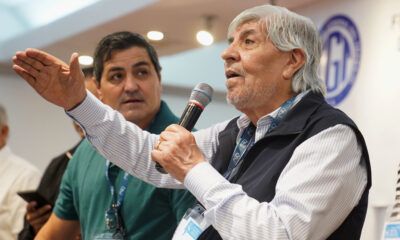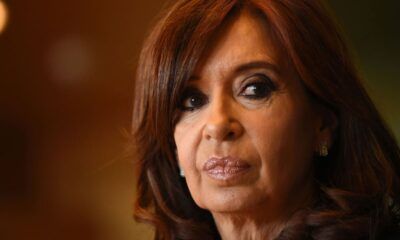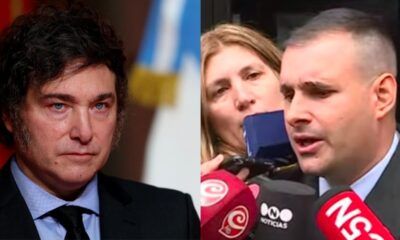INTERNACIONAL
Mexican president wanted to lead Latin America, but reality and his own rhetoric got in the way
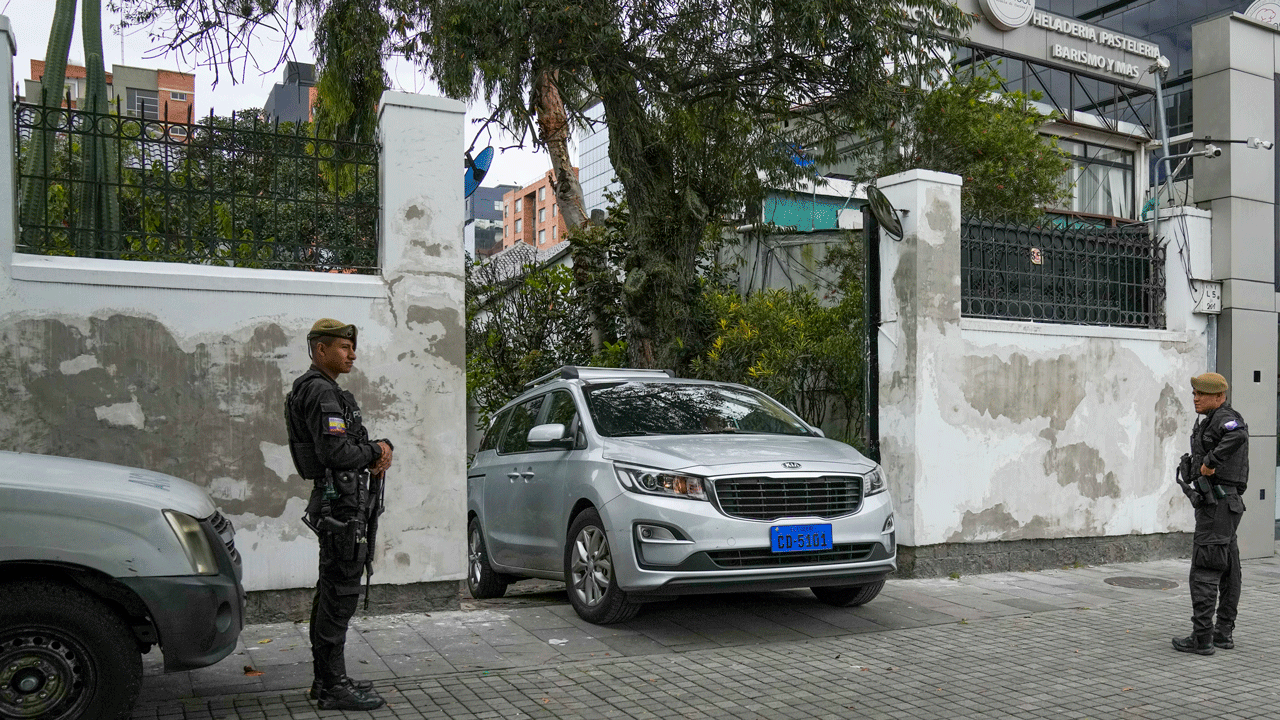
MEXICO CITY (AP) — President Andrés Manuel López Obrador took office in 2018 hoping to recover Mexico’s old reputation as the diplomatic leader of Latin America, but what he’s managed to do is get several of his country’s ambassadors kicked out of countries in the region.
On Friday, López Obrador doubled down after Ecuador ordered the Mexican ambassador out of the country a day earlier, vowing to send a military plane to remove the ambassador and pledging to continue the heated rhetoric. Previously, both Peru and Bolivia had withdrawn their ambassadors in similar disputes.
MEXICAN PRESIDENT DENIES CARTELS ARE PRODUCING MOST FENTANYL, BLAMES US DRUG USE ON FAMILY BREAKDOWN
López Obrador acknowledged that more countries may expel Mexican diplomats because of his criticism of conservative governments, saying that was «because our posture is uncomfortable for the oligarchies of Latin America, and those that really run things, the foreign hegemonic forces.»
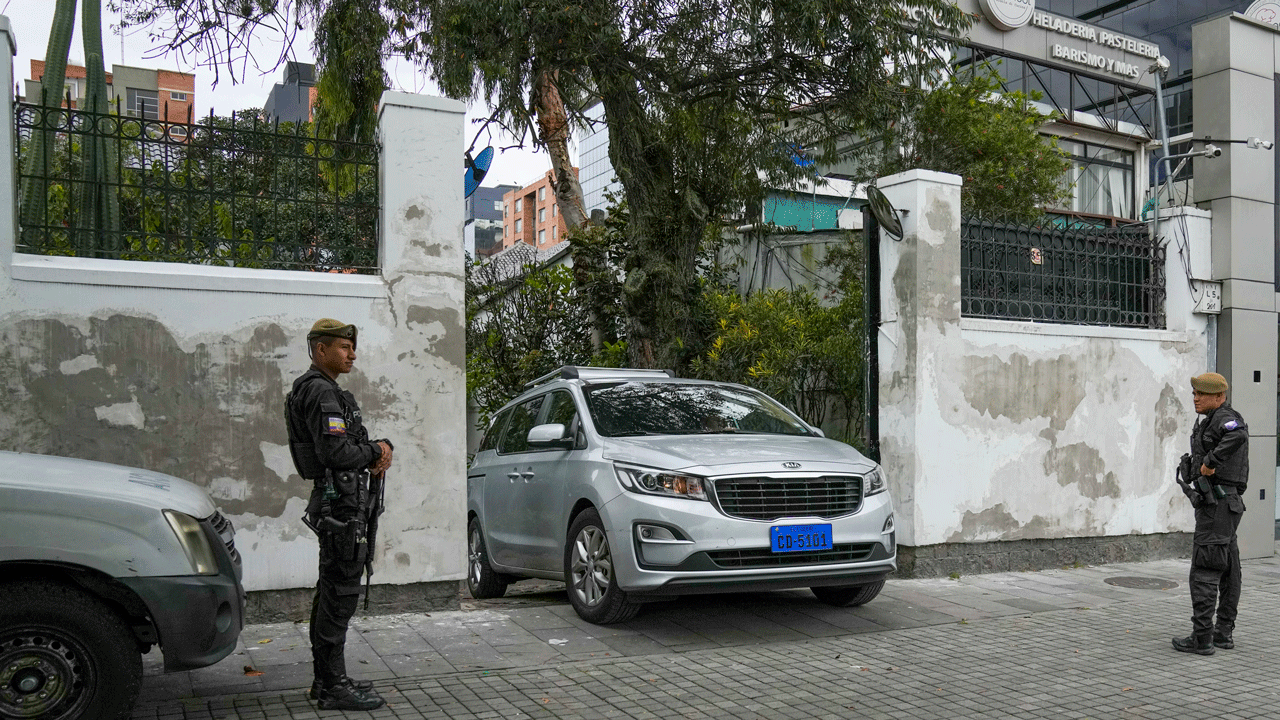
A car with diplomatic plates leaves the Mexican embassy in Quito, Ecuador, Friday, April 5, 2024. Ecuador on Thursday declared Mexico’s ambassador to Quito persona non grata due to recent statements made by Mexican President Andrés Manuel López Obrador regarding Ecuador’s 2023 presidential elections. (AP Photo/Dolores Ochoa)
That sounds like staunch leftist rhetoric from the 1960s to the early 80s, the period López Obrador is nostalgic for, when Mexico’s old ruling party, the PRI, defended Cuba and helped start peace talks with leftist rebels in Central America. But the president hasn’t adapted to Latin America’s recent rapid swings from left to right.
«For a guy who’s really not interested in foreign policy, he’s got these pipe dreams of what Mexican foreign policy should look like,» said Arturo Sarukhan, Mexico’s former ambassador to the U.S. «It’s nostalgia, it’s the Mexico that he cut his teeth in as a politician, the PRI, it’s the typical PRI foreign policy of using Latin American as a foil vis-a-vis the U.S.»
While it sounds like just another of the president’s recurring, petty diplomatic disputes — López Obrador is famously uninterested in foreign policy and seldom travels or meets with other leaders — this one could escalate.
Mexico is using its embassy in Ecuador to protect an official from the former leftist government of ex-president Rafael Correa, who López Obrador really liked. The ex-official is fleeing two convictions and more investigations for corruption. Mexico upped the ante Friday by granting him asylum, and voiced fears Ecuador could raid the embassy to arrest the former official, who is accused of corruption.
«The Mexican government rejects the increased presence of Ecuadorian police forces outside the Mexican Embassy in Quito,» the Foreign Relations Department said in a statement Friday. «This clearly constitutes harassment of the embassy and is a flagrant violation of the Geneva Convention.»
The whole spat started after López Obrador — who is known for making off-handed comments during his marathon-like daily news briefings — made insulting comments about current Ecuadorian President Daniel Noboa, suggesting the conservative won office because «they created this climate of fear.»
López Obrador claimed the conservatives used the 2023 assassination of Ecuadorian presidential candidate and anti-corruption crusader Fernando Villavicencio, to swing the elections in Noboa’s favor and block the return of Correa’s leftist movement.
Coming from a Mexican leader, the comments were particularly sensitive given that Mexican drug cartels are believed to be involved with many of the Ecuadorian gangs responsible for the exploding levels of violence in the South American country. López Obrador has a policy of not confronting the cartels.
But the comments also appeared to be insulting on a personal level to many.
Amanda Villavicencio, one of the daughters of the assassinated candidate, wrote in her social media accounts Thursday that «López Obrador, you should wash your mouth out before talking about my father. Fernando Villavicencio was killed by the mafiosos he always investigated, some of whom have taken refuge at your embassy and in your country.
The situation is complicated by the fact that things haven’t really been going López Obrador’s way in Latin America.
The former leftist president of Argentina, Alberto Fernandez, is one of López Obrador’s only close allies in the region, along with Cuban President Miguel Diaz-Canel, the only foreigner ever invited to speak at a Mexican Independence Day celebration. Fernandez was swept out of power in last year’s elections by radical libertarian and free-market proponent Javier Milei.
The other major diplomatic leader in Latin America, Brazil’s leftist President Luiz Inácio Lula da Silva, has been well ahead of López Obrador on adopting a neutral stance on Russia’s invasion of Ukraine and condemning Israel for the war in Gaza. At one point he controversially compared Israel’s actions to the Holocaust.
So López Obrador’s hopes of leading a resurgent leftist tide in Latin America — waves that periodically swept the region every decade or so — have been frustrated by a region that now much more resembles a pinball machine of rapid switches, rather than a grand swing of any ideological pendulum.
«He doesn’t understand foreign policy,» Sarukhan, the former diplomat, said. «He doesn’t understand how the world has changed since the 1970s and how Mexico’s role in the world has changed.»
But in a real sense, Latin America is second to maintaining Mexico’s most economically important relationship, with the United States. Latin America is a stage where Mexico can ‘look’ leftist, while kowtowing to U.S. demands on everything else.
In 2022, López Obrador famously refused to attend a U.S. summit in Los Angeles because Cuba, Nicaragua and Venezuela hadn’t been invited.
But apart from some economic support for Cuba, including buying vaccines and importing doctors and supplying the island with oil, López Obrador’s support for Cuba has remained largely rhetorical.
CLICK HERE TO GET THE FOX NEWS APP
López Obrador pledged at the beginning of his administration that there would be no tension with the U.S. and he has largely kept that promise by reliably acceding to every U.S. request on the most important issue, migration.
Mexico has agreed to try to stop migrants before they reach the U.S. border and agreed to accept deportees who are not Mexican citizens, something that by law it doesn’t have to do.
INTERNACIONAL
Trump says Turkey ‘did an unfriendly takeover’ in Syria as US-brokered cease-fire appears to fail

President-elect Trump on Monday described the recent fall of the Bashar al-Assad regime as an «unfriendly takeover» orchestrated by Turkey.
«I think Turkey is very smart,» he said from a press conference at his Florida residence. «Turkey did an unfriendly takeover, without a lot of lives being lost. I can say that Assad was a butcher, what he did to children.»
Assad fled to Russia just over a week ago after the al Qaeda-derived organization dubbed Hay’at Tahrir al-Sham (HTS) rapidly took over western Syria in an offensive that began on Nov. 27, first taking Aleppo, Hama and Homsc, before seizing the capital city of Damascus.
Rebel forces seized Mengh Airbase and the city of Tel Rifaat in the Aleppo countryside on Dec. 1, 2024. (Rami Alsayed/NurPhoto via Getty Images)
ASSAD PAINTS HIMSELF AS ‘CUSTODIAN’ TO SYRIA AS PICTURE UNFOLDS ON COLLAPSE OF DAMASCUS
The future of Syria, for both its government and its people, remains unclear as the HTS organization, deemed a terrorist network by the U.S. but which has the backing of the Turkey-supported Syrian National Army (SNA), looks to hold on to power.
The fall of the Assad regime has meant an end to the nearly 14-year civil war that plagued the nation, though the threat against the U.S.- backed Kurdish-led Syrian Democratic Forces (SDF) is not over as Turkey continues to view it as one of its chief regional adversaries.
The SDF have assisted the U.S. in its fight against ISIS for more than a decade, but Turkey, which shares a border with Syria, has long viewed the group as being affiliated with the extremist Kurdistan Workers’ Party (PKK), and which, through the SNA, has clashed with the Kurdish-led forces.
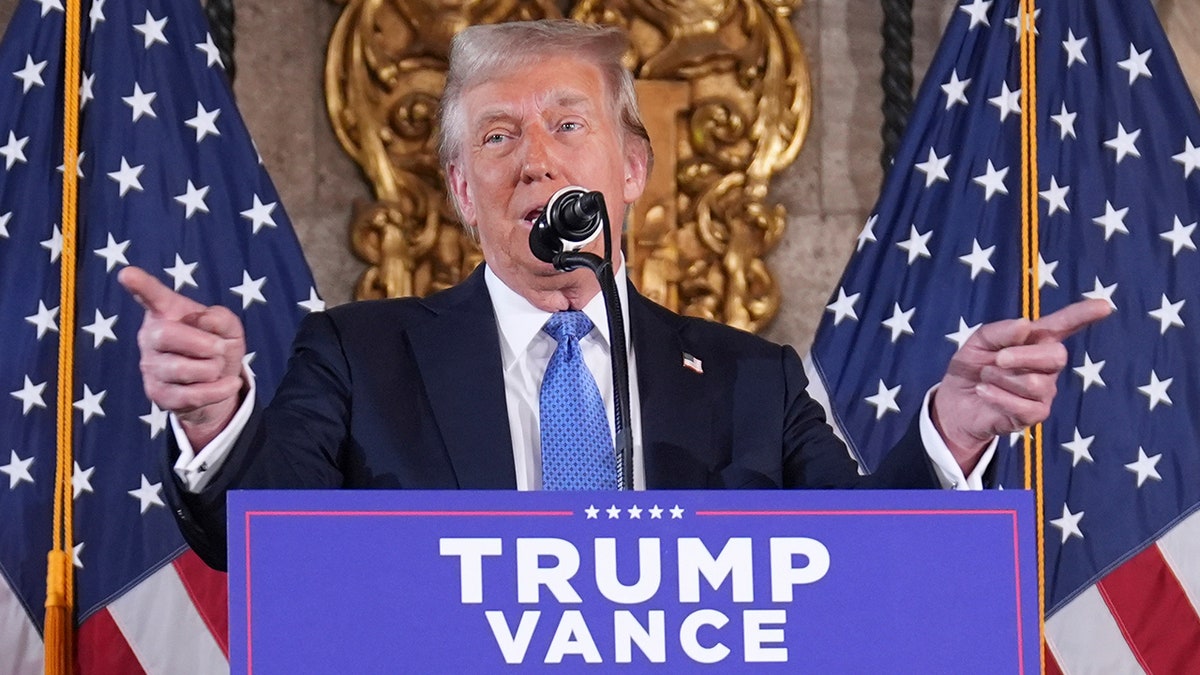
President-elect Trump speaks during a news conference at Mar-a-Lago, on Monday, Dec. 16, 2024, in Palm Beach, Florida. (AP/Evan Vucci)
It remains unclear how the Kurds will fair under a potential HTS regime, but Western security experts are increasingly concerned that Turkey could have an outsized amount of influence on the neighboring nation.
«The fall of Assad greatly amplified Turkey’s influence in Syria, giving unprecedented influence to his partners and proxies. If the United States wants to ensure that Syria has the best chance to become a reasonably free and stable country, it needs to keep a very close eye on [Turkish President Recep] Erdogan,» David Adesnik, vice president for research at the Foundation for Defense of Democracies, told Fox News Digital.
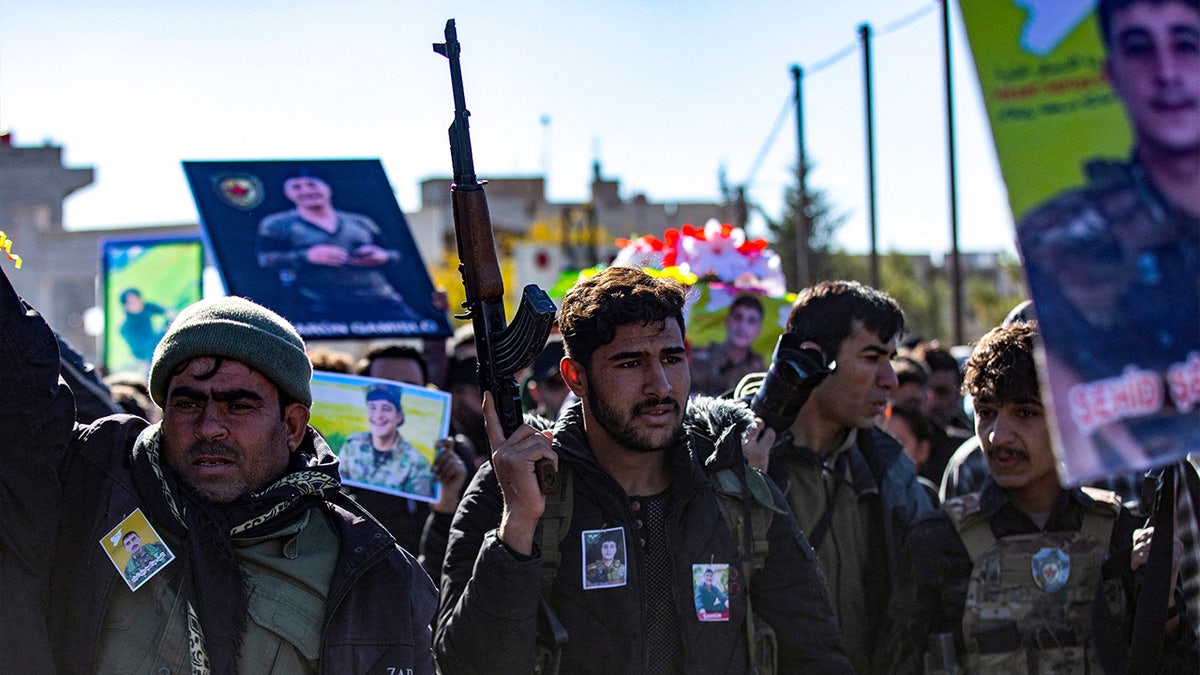
Comrades attend the funeral of five fighters of the Kurdish-led Syrian Democratic Forces who were killed during clashes with Turkish-backed opposition factions, in Qamishli in northeastern Syria on Dec. 14, 2024. (Delil Souleiman/AFP via Getty Images)
TURKEY HITS US-ALLIED KURDS IN SYRIA, IRAQ FOLLOWING TERRORIST ATTACK ON DEFENSE GROUP
Last week, the U.S. brokered a cease-fire agreement between the SDF and the SNA over the northeastern city of Manbij, where SDF coalition forces agreed to withdraw from the area after resisting attacks since Nov. 27, according to a Reuters report.
But sources told Fox News Digital on Monday that negotiations relating to the cease-fire had collapsed and that the SNA had begun building up military forces west of the Kurdish town of Kobani – roughly 35 miles east of Manbij – in an apparent threat to resume combat operations.
The terms of the cease-fire remain unclear, and neither the White House nor the State Department responded to Fox News Digital’s questions.
According to a statement released by the SDF, the mediation efforts by the U.S. failed to establish a permanent truce in Manbij-Kobani regions due to Turkey’s «evasion to accept key points,» including the safe transfer of civilians and Manbij fighters.
«Despite U.S. efforts to stop the war, Turkey and its mercenary militias have continued to escalate over the last period,» the SDF said.
A spokesperson for Turkey’s U.N. Mission did not immediately return Fox News Digital’s request for comment.
«The re-eruption of tensions around Kobani underlines the extent to which Assad’s fall has ‘opened the gates’ for Turkey and its SNA proxies in northern Syria,» Charles Lister, director of the Syria and countering terrorism and extremism programs at the Middle East Institute (MEI), told Fox News Digital. «For the first time, they’re free to act without a green light from Assad or Russia.»
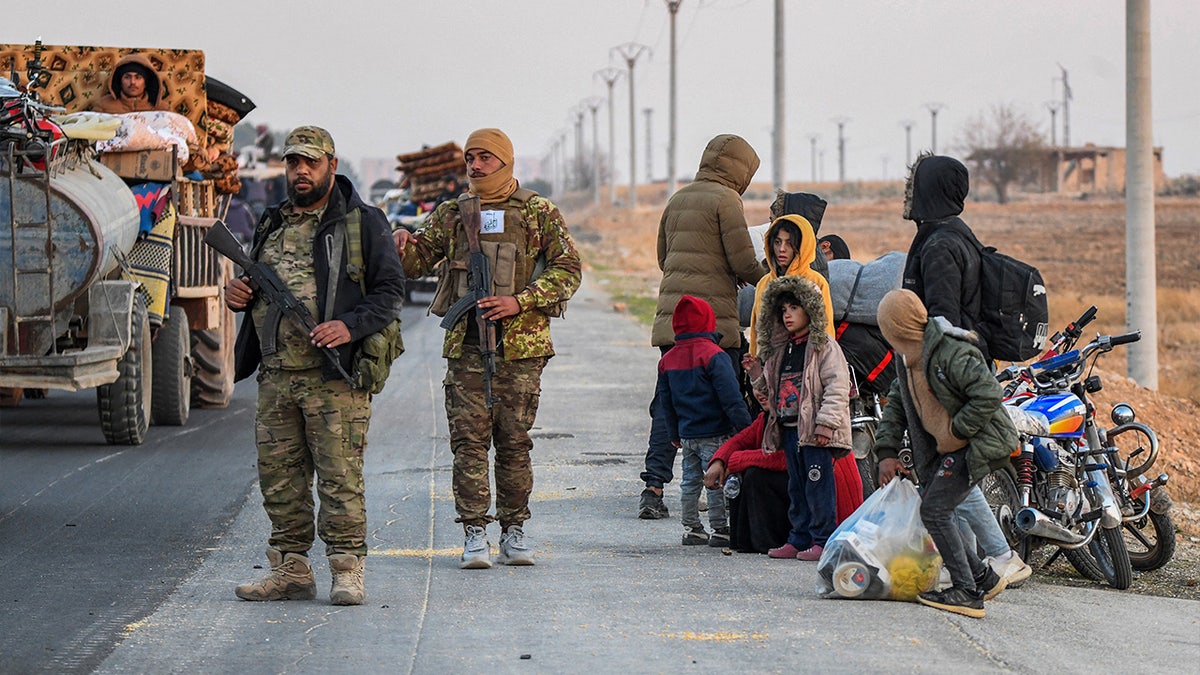
Anti-regime fighters stand on the roadside as displaced Syrian Kurds drive vehicles loaded with belongings on the Aleppo-Raqqa highway, fleeing Aleppo, on Dec. 2, 2024. (Rami Al Sayed/AFP via Getty Images)
CLICK HERE TO GET THE FOX NEWS APP
The dynamic between the SDF and SNA forces, backed by Washington and Ankara, respectively, has long proved difficult to maneuver given that both the U.S. and Turkey are allies in NATO.
«After the loss of Tel Rifat and Manbij in recent weeks, the only possible obstacle to further SDF losses is the presence of U.S. troops – but Turkey’s role within NATO has always limited U.S. options,» Lister explained.
«[U.S. Central Command Gen. Michael’ Kurilla’s recent visit and the SDF’s willingness to cede Manbij spoke to the unprecedentedly isolated position the SDF currently faces,» he added in reference to a visit Kurilla made to Syria last week. «If the SDF is going to survive these challenges, it’s going to need to be extremely flexible, willing to concede on major issues, and rely heavily on U.S. diplomacy with Turkey.»
-
POLITICA2 días ago
Hugo Moyano acusó al Gobierno de querer meterse en las paritarias para que el aumento no supere el 1% y amenaza con un paro antes de fin de año
-
POLITICA2 días ago
Causa Hotesur-Los Sauces: la Corte rechazará el último recurso de Cristina Kirchner y abre el camino para el juicio oral
-
POLITICA2 días ago
Patricia Bullrich habló sobre el gendarme detenido en Venezuela y reveló dónde lo tiene encerrado el régimen de Nicolás Maduro
-
POLITICA2 días ago
Polémica: a partir de enero, los senadores pasarán a cobrar dietas de 9,5 millones de pesos mensuales
-
POLITICA23 horas ago
Si Milei hace el 15 por ciento de lo que prometió, se queda ocho años
-
CHIMENTOS2 días ago
Franco Colapinto podría perder su lugar en la F1 por otro argentino






























